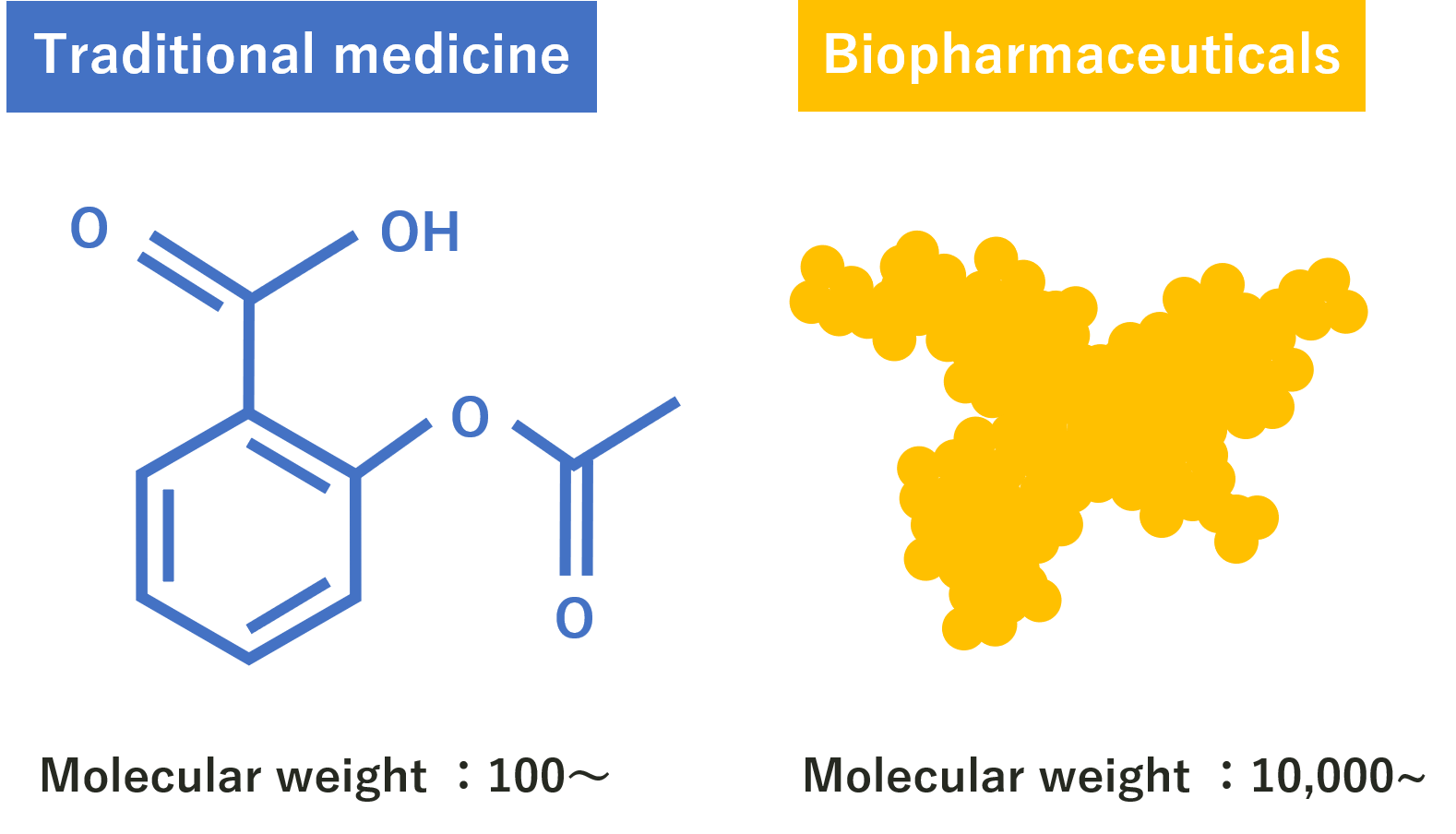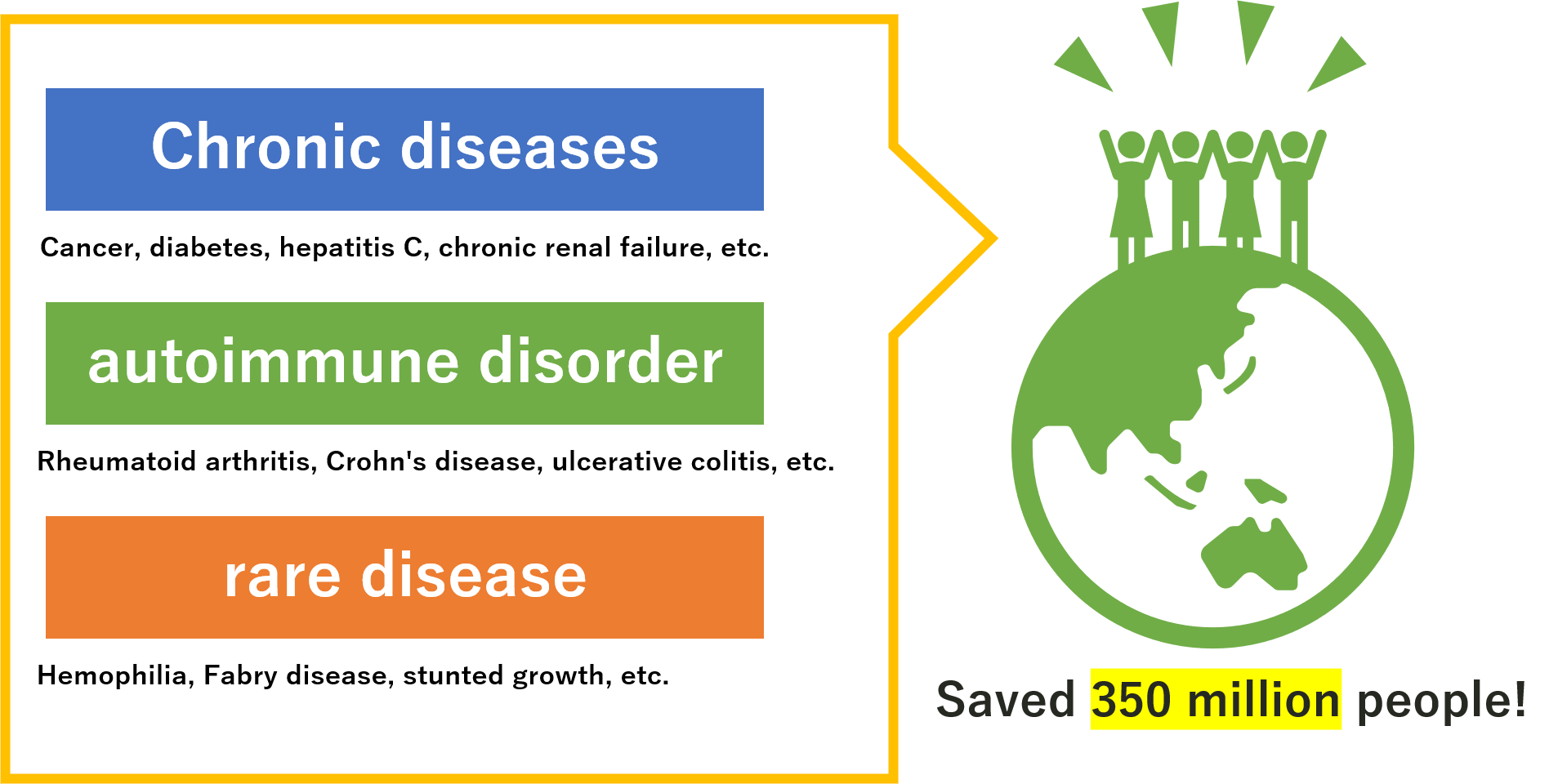biopharmaceuticals
What is a biopharmaceuticals?
Have you ever heard of "biopharmaceuticals"?
To put it simply, biopharmaceuticals are drugs that use the power of living organisms.
In fact, the nature of these drugs is different from the ones we use now! Conventional medicines are called
small molecule medicines and are made by chemical synthesis, with small molecules and simple structures. In contrast, biopharmaceuticals have a very complex structure because they are made from a variety of organisms.
Characteristics of biopharmaceuticals
So what exactly is the difference between small molecule drugs and biopharmaceuticals? Unlike low-molecular-weight drugs,
biopharmaceuticals that utilize the functions of living organisms have a structure similar to that of substances naturally produced by humans,
and are expected to have a high therapeutic effect on many intractable diseases such as cancer and autoimmune diseases. Biopharmaceuticals are already in use and are helping about 350 million patients worldwide.
On the other hand, due to their complex structure, biopharmaceuticals need to meet high-precision standards such as Good Manufacturing Practice (GMP) in order to maintain safety and efficacy.


